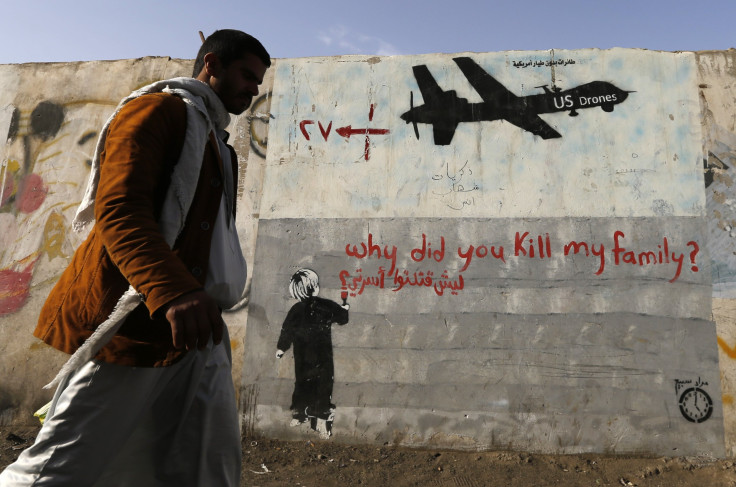Barack Obama Sued By Yemeni Families Over Alleged ‘Unlawful Deaths’ From Drone Strikes

The families of two Yemeni men, allegedly killed in drone strikes conducted by the United States in 2012, have filed a lawsuit against President Barack Obama and other U.S. leaders. In the lawsuit, the families claimed that the two men were innocent bystanders and demanded that the American government admit to their “unlawful deaths.”
In the lawsuit, filed last Sunday, the families of Salem bin Ali Jaber and Waleed bin Ali Jaber did not seek any monetary relief, but claimed that the men's deaths “violated the laws of war and norms of customary international law” and “provide a case study of the failures of the drone war,” Reuters reported, citing the 43-page court filing.
The two men were killed on Aug. 29, 2012, in the eastern Yemeni village of Khashamir, by missiles fired from a U.S. drone near a local mosque, according to the filing. Along with Obama, the lawsuit also reportedly named former U.S. defense secretary Leon Panetta and former CIA director David Petraeus, as defendants.
“There is a simple question at the heart of this claim,” the lawsuit, first reported by the New York Times, said. “The president has now admitted to killing innocent Americans and Italians with drones; why are the bereaved families of innocent Yemenis less entitled to the truth?”
According to the complaint, Salem, a cleric, and Waleed, his cousin and a traffic police officer, were inadvertently killed when they met with three youths, who had requested a meeting with Salem. The drone operators apparently had evidence that the three men were al Qaeda members, and assumed Salem and Waleed to be the same, the Times reported.
The lawsuit also stated that the families of Salem and Waleed had received $155,000 in compensation from the Yemeni government, but it was unknown where the money had originated.
The case is Salem bin ali Jaber et al v. United States et al, U.S. District Court District of Columbia, No. 1:15-cv-00840, Reuters reported.
The U.S. has been conducting counterterrorism drone strikes in Yemen since 2002, targeting al Qaeda strongholds in the country, with the support of Yemen’s internationally recognized President Abed Rabbo Mansour Hadi. And, since March, Yemen has witnessed intense fighting between Shiite Houthi rebels and al Qaeda in the Arabian Peninsula (AQAP) since the Houthis took control of the country’s capital city of Sanaa, prompting Hadi to flee the country.
© Copyright IBTimes 2025. All rights reserved.






















